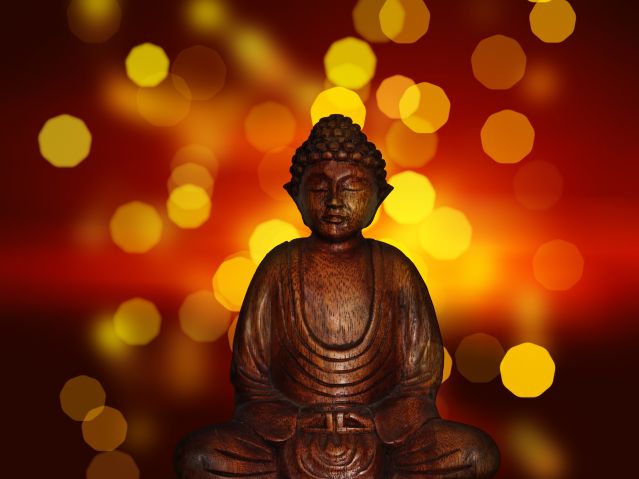Mindfulness
Mindfulness: The Power of “Thinking About Your Thinking”
Are mindfulness and meditation the next big health revolution?
Posted April 9, 2015

Dan Harris from ABC News contacted me out-of-the-blue a few years ago to discuss the power of mindfulness and meditation. His book, 10% Happier, which has since become a No. 1 New York Times bestseller, does a terrific job of demystifying meditation and illustrating why taking a few minutes every day to “think about your thinking" can dramatically improve your life.
In a recent interview on NPR Harris said, “If you had told me 10 years ago that I was going to be a public evangelist for meditation, I would have coughed my beer up through my nose. I mean, this is just the last thing I ever saw coming.”
Harris' self-depracating sense of humor and secular approach make him an unexpected, but perfect, messenger for the powers of mindfulness and meditation. He's also very good at explaining—in very clear, simple, and accesible terms—"how-to" meditate and practice daily mindfulness.
Even with the mind-body awareness revolution of the 1970s led by trailblazers like Jon Kabat-Zinn and Herbert Benson, “meditation” and “mindfulness” have continued to suffer somewhat of a PR problem. Making meditation seem easy to practice, relatable and desirable to a large general audience has traditionally been hard to communicate and a tough sell.
Harris has done us a huge public service by becoming a self-proclaimed "evangelist for meditation." Harris combines healthy cynicism with a sense of humor and has a straightforward approach that avoids any new-age clichés or self-help gobbledygook. His findings are science based and his how-to advice is simplified without ever dumbing anything down.

Meditation 101: Focus Your Attention on Your Breath Coming In and Going Out
Meditation can seem like something that is reserved for Buddhist monks or someone who lives in an ashram. The idea of becoming a practitioner of meditation can connote a lifetime of dedication that requires you to spend hours sitting in a lotus position while burning incense and chanting “om.” This is not the case.
Harris makes daily meditation as easy as 1-2-3. As Dan explains, "all you need to do is sit upright in a chair for about 5-minutes and focus your full attention on the feeling of your breath coming in and out. If your mind wanders, simply guide your attention back to your breath."
Three Steps to Meditation by Harris
1. Sit comfortably, with your back upright.
2. Focus your full attention on the feeling of your breath coming in and going out.
3. Bring your attention back to your breath. You don’t have to clear your mind; getting lost and coming back is the whole game.
Like many people, I’ve often felt like I'm not very "good" at meditation because when I meditate, my mind tends to wander and the idea of “emptying my mind” and achieving a zen-like state seems frustratingly out of reach. I had a huge “aha” moment when I heard Harris explain that not clearing your mind but returning your attention back to your breath is, in fact, “the whole game.”
Harris’ interpretation of meditation dissolves any potential judgments or feelings of “failure." He makes it clear that the cognitive process of bringing your attention back to your breath is actually what flexes the mental muscles that can literally rewire your brain and shift how you “think about your thinking” at a neurobiological level.
Mindfulness 101: Think About Your Thinking

Mindfulness is generally described as, “1. the quality or state of being conscious or aware of something. 2. a mental state achieved by focusing one's awareness on the present moment, while calmly acknowledging and accepting one's feelings, thoughts, and bodily sensations.”
Harris has a simple and relatable definition for mindfulness as, “The skill of knowing what’s happening in your head at any given moment without getting carried away by it.”
Harris makes an analogy of the thoughts in your mind being like a waterfall filled mostly with thoughts of “me, me, me.” In this metaphor, mindfulness allows you to step away from the current of the gushing waterfall and observe the contents of your thoughts in the waterfall non-judgmentally from a distance.
Meditation and mindfulness probably won't deliver you to a permanent state of Nirvana. However, 10% Happier convincingly illustrates how and why meditation and mindfulness are a dynamic duo that can help you transcend the belief that external factors ultimately drive your happiness.
Mindfulness gives you the ability to see the glass as half-full or half-empty in a wide range of circumstances. Not that you want to use mindfulness or meditation to become a non-reactive blob or a Pollyanna ... but pragmatic optimism, and using mindfulness to decide how you are going to respond to the “monkey in your mind” is in the locus of your control.
Conclusion: We Are Homo Sapiens Sapiens Who “Think and Know We Think”
Harris points out that human beings as a species are technically classified as “Homo Sapiens Sapiens,” which means “the man or woman who can think and knows he thinks.” Unfortunately, the second "sapiens" has been dropped from our name over time. That said, the ability to step outside of ourselves and “think about our thinking” calmly and non-judgmentally is something that will always make humans unique.
Flexing your ability to think about your thinking and practicing brief bouts of daily meditation is good for your health and has an endless list of psychological and physical benefits for your well-being. Harris is a timely zealot for the power of mindfulness and believes that meditation is the next big public health revolution. I agree.
Mindfulness can be practiced anytime, anywhere. Meditation only takes five minutes a day. If you aren’t currently practicing either mindfulness or meditation, why not start doing so today? As 10% Happier makes very clear, it’s as easy as 1-2-3.
Harris recently gave this entertaining and informative talk at Google:
If you'd like to read more on this topic, check out my Psychology Today blog posts:
- “5 Neuroscience Based Ways to Clear Your Mind"
- "Mindfulness Made Simple”
- ”How Does Meditation Reduce Anxiety at a Neural Level?”
- "Let's Not Get Panicky"
- “Mindfulness Training and the Compassionate Brain”
- "Meditation Has the Power to Influence Your Genes"
- "Cortisol: Why "The Stress Hormone" Is Public Enemy No. 1"
- “The Neurobiology of Grace Under Pressure”
- "Meditation May Slow Age-Related Cognitive Decline”
- “Why Does Having a Positive Attitude Keep You Healthier?”
- “Mindfulness Meditation Can Help You Make Smarter Decision”
- "Alpha Brain Waves Boost Creativity and Reduce Depression"
© Christopher Bergland 2015. All rights reserved.
Follow me on Twitter @ckbergland for updates on The Athlete’s Way blog posts.
The Athlete’s Way ® is a registered trademark of Christopher Bergland.




